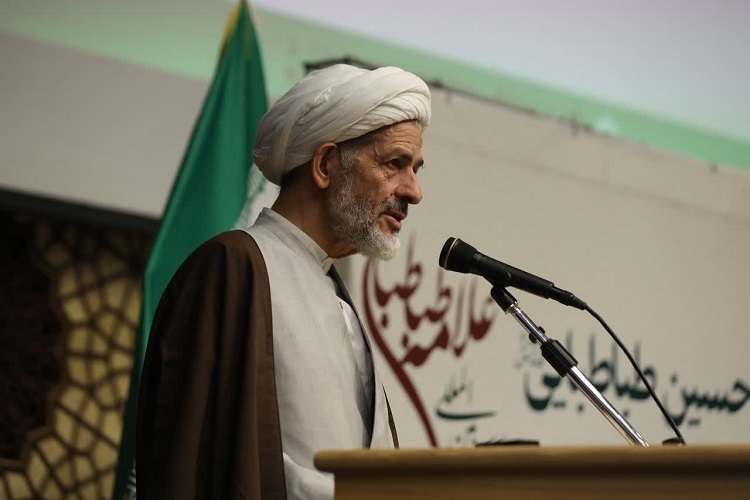Understanding Religion Requires More Than Reason, Scholar Says

Speaking on Saturday at a scientific conference in Qom, Ayatollah Fayyazi said, “We study philosophy to explain beliefs and moral values, but everyone knows that the way to understand religion is not only through reason.”
He added that throughout history, prominent philosophers such as Avicenna (Ibn Sina), Mulla Sadra, Allameh Tabatabaei, and Ayatollah Javadi Amoli have written Quranic interpretations “to draw on verses and traditions for rational clarification.”
Fayyazi cited Ayatollah Mesbah Yazdi’s view that while studying and teaching in the seminary are essential, scholars must “always distinguish between what is more and less important.”
Read More:
He described Mesbah as a jurist deeply connected with the Quran and hadith, adding that his classes on Quranic teachings were “unmatched in their depth and insight into Islamic thought.”
Referring to philosophical debates about resurrection, Fayyazi said, “Some philosophers argue that resurrection is non-physical, while others believe it must involve the body. Rational arguments alone are insufficient; we must turn to the Quran and Sunnah.”
He stressed that “a person who confines himself to philosophy and avoids transmitted sources has no place in the seminary,” since understanding religion requires harmony between reason, revelation, and tradition.
He noted that Ayatollah Mesbah established the field of Quranic Studies to integrate rational, scriptural, and traditional approaches.
Read More:
“Familiarity with the Quran and hadith is essential for every student and researcher,” he said, adding that Mesbah’s Teachings of the Quran course “must be taken seriously by anyone who seeks to understand Islam.”
Fayyazi noted that scholars such as Allameh Tabatabaei and Ayatollah Mesbah helped counter ideological threats such as communism before the revolution by grounding intellectual responses in the Quran and Islamic philosophy.
4314104



